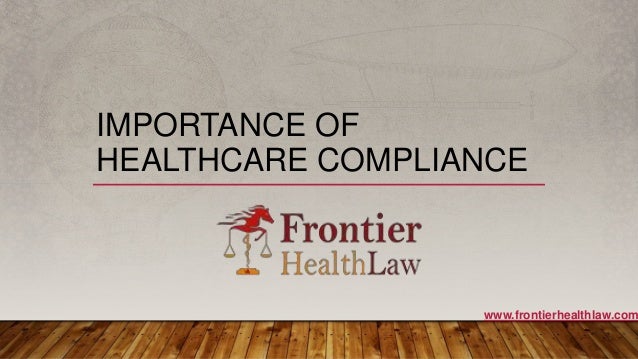When it comes to healthcare, ethics and
compliance aren’t simply legal requirements; they are critical components to
quality and safe patient care too. Regardless of the specialty or size of the
healthcare facility or practice, all the medical providers face concerns
related to healthcare compliance.
Healthcare compliance is an ongoing process
of legally abiding to professional and ethical standards that are applicable to
the healthcare industry. Health care compliance requires effective development
of policies, procedures, and processes in order to educate staff, define
appropriate conduct, as well as to monitor that everyone adheres to set
guidelines. A healthcare compliance program encompasses numerous areas
including, patient care, billing, reimbursement, managed care, HIPAA, and OSHA.
The purpose of a healthcare compliance
program is promoting organizational adherence to the applicable state and
federal law, and also to the healthcare requirements of the private payer. An
effective healthcare compliance program could help in detecting and preventing
frauds, waste, and abuse. Compliance programs designed as per the Healthcarelaw Las Vegas helps establish a culture within the organization that promotes,
detection, prevention, and resolution any conduct that doesn’t conform to the
organization’s business and ethical policies, and the law. Compliance programs
need to be articulate and must demonstrate the commitment of the organization
to adhere to the law and the ethical standards.
A lot of commercial insurers require
healthcare providers to have healthcare compliance programs at place, as an
essential condition to be able to participate in their program. Medical
providers that aren’t able to do so have greater risk of failing to participate
in any healthcare program.












